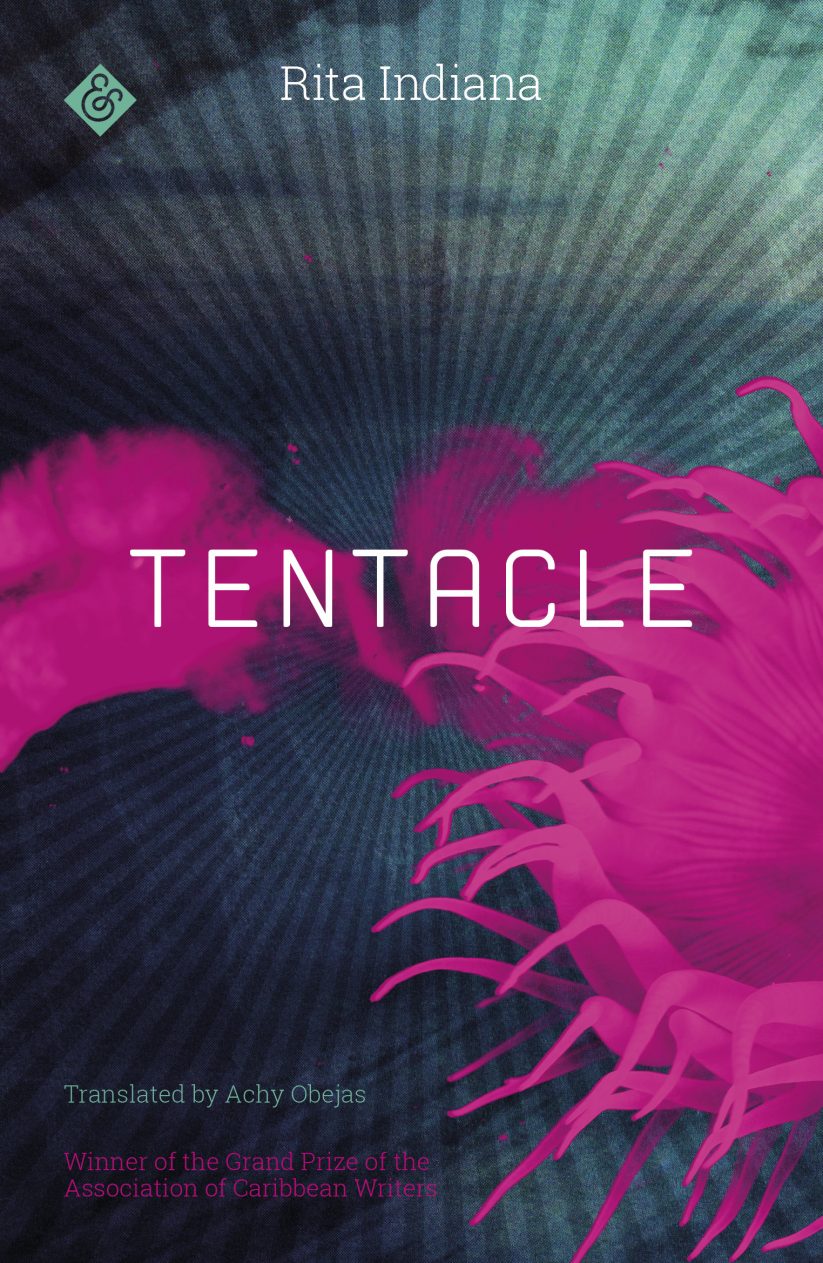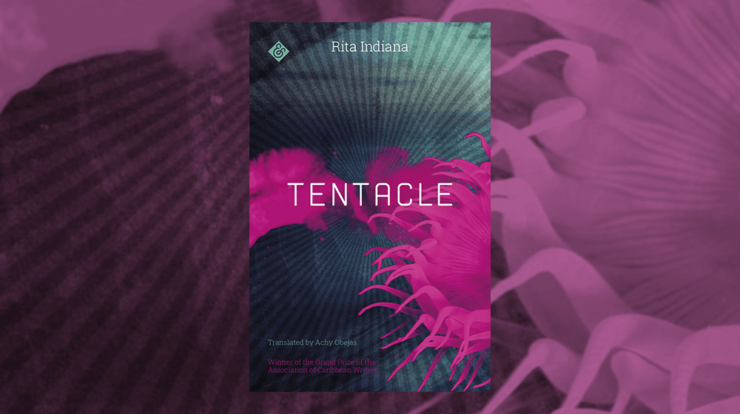Time travel occurs in contexts both science fictional and fantastical. Stories centered around it can explore the bizarre paradoxes that it generates, or lose the reader in the thrills or dangers that can arise from journeying into the past or future. To say that there are certain tropes that surround time travel would be a massive understatement, and yet: I’m not sure there’s ever been a story of moving through time quite like Rita Indiana’s heady and surreal novel Tentacle.
The novel opens in the Dominican Republic–specifically, Santo Domingo in the near future, where environmental devastation abounds alongside economic inequality. Protagonist Acilde works a series of jobs, including sex work, while saving money to pay for a futuristic drug that’s taken the place of gender affirmation surgery. (Indiana refers to Acilde by female pronouns before she takes this, and by male pronouns afterwards.) So far, this all seems familiar: a protagonist with humble roots, a world where today’s issues have been taken to another level, and a tangible goal that they’re working towards. And then Indiana throws a host of disparate elements into the mix: time travel, bifurcated consciousnesses, “chosen one” narratives, some art-world satire, pirates, and the music of Giorgio Moroder.
This is a novel in which people escaping a quarantine can be killed on sight with futuristic technology; it’s also one in which a character has a fondness for borrowing dialogue from “twentieth-centuries no one had ever seen, like Police Academy and The Money Pit.” To say that this is something of an aesthetic, moral, and philosophical rollercoaster is a huge understatement; it’s also the point.
When the novel has opened, Acilde is working as a maid in the home of Esther, an elderly and politically-connected santera. It turns out that Esther has hired Acilde due to her belief that Acilde is destined to reverse the devastation wrought on the ocean. This is to be accomplished via a ritual involving a sea anemone, which sends Acilde back in time, while also leaving him in his own world.
“Do I have two bodies or is my mind capable of broadcasting two different channels simultaneously?” Acilde asks himself after this split has taken place. In his present, Acilde contends with the fallout from the ritual that sent him back in time, while in the past, he takes action to prevent an environmental catastrophe from taking place. It’s a dizzying concept, and one which Indiana embraces wholeheartedly.
Buy the Book


Tentacle
Running parallel to Acilde’s story is that of Argenis, a man working at a call center in the present day under the name “Psychic Goya,” doing Tarot readings. Argenis is a frustrated artist, as well as a bristly figure to follow, prone to mentally lashing out at everyone and everything around him due to his own ill fortune. On one hand, Argenis is embittered because his artistic talents are being overshadowed due to the more conceptual work in fashion: “His fluency with perspective and proportion wasn’t worth a dime,” Indiana writes. “His classmates were rich kids with Macs and digital cameras who talked about Fluxus, video art, video action, and contemporary art.” On the other hand, Argenis is also prone to homophobic language and a general sense of misanthropy, which may well mean that his problems are more of his own making than he’d like to admit.
Talking about the novel too much would spoil a number of the plot’s twists and turns; as befits a novel with multiple timelines and characters moving temporally, there’s plenty of unlikely overlaps and moments of convergence. Within the pages of Tentacle, Indiana covers a lot of ground–and seeing how all of its seemingly disparate threads fit together can require some backtracking.
When it all comes together, though, the result of Indiana’s novel is a dizzying, almost ecstatic experience. (It is no coincidence that dance music shows up at various points over the narrative.) Tentacle is a book that blends heady narrative concepts and weighty themes with a puckish sensibility and some left-field allusions. (One crucial conversation is conducted entirely in emoji.) But what might be most welcome about this book is its sheer unpredictability, which Indiana carries out with gusto.
Tentacle is available from And Other Stories.
 Tobias Carroll is the managing editor of Vol.1 Brooklyn. He is the author of the short story collection Transitory (Civil Coping Mechanisms) and the novel Reel (Rare Bird Books).
Tobias Carroll is the managing editor of Vol.1 Brooklyn. He is the author of the short story collection Transitory (Civil Coping Mechanisms) and the novel Reel (Rare Bird Books).










